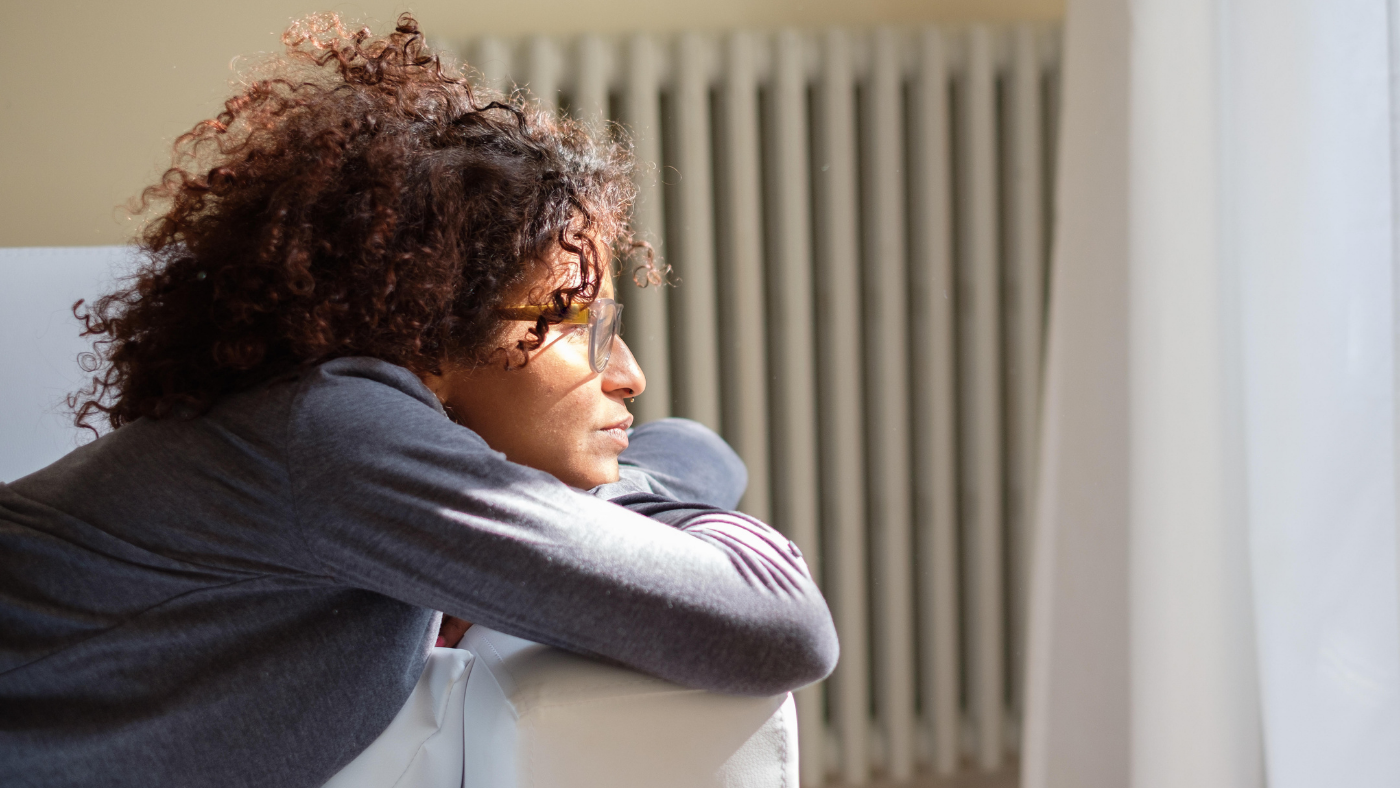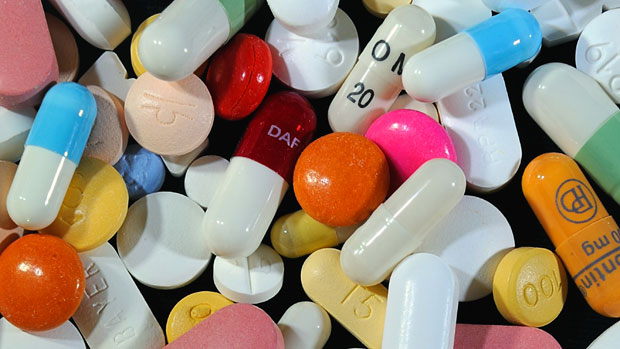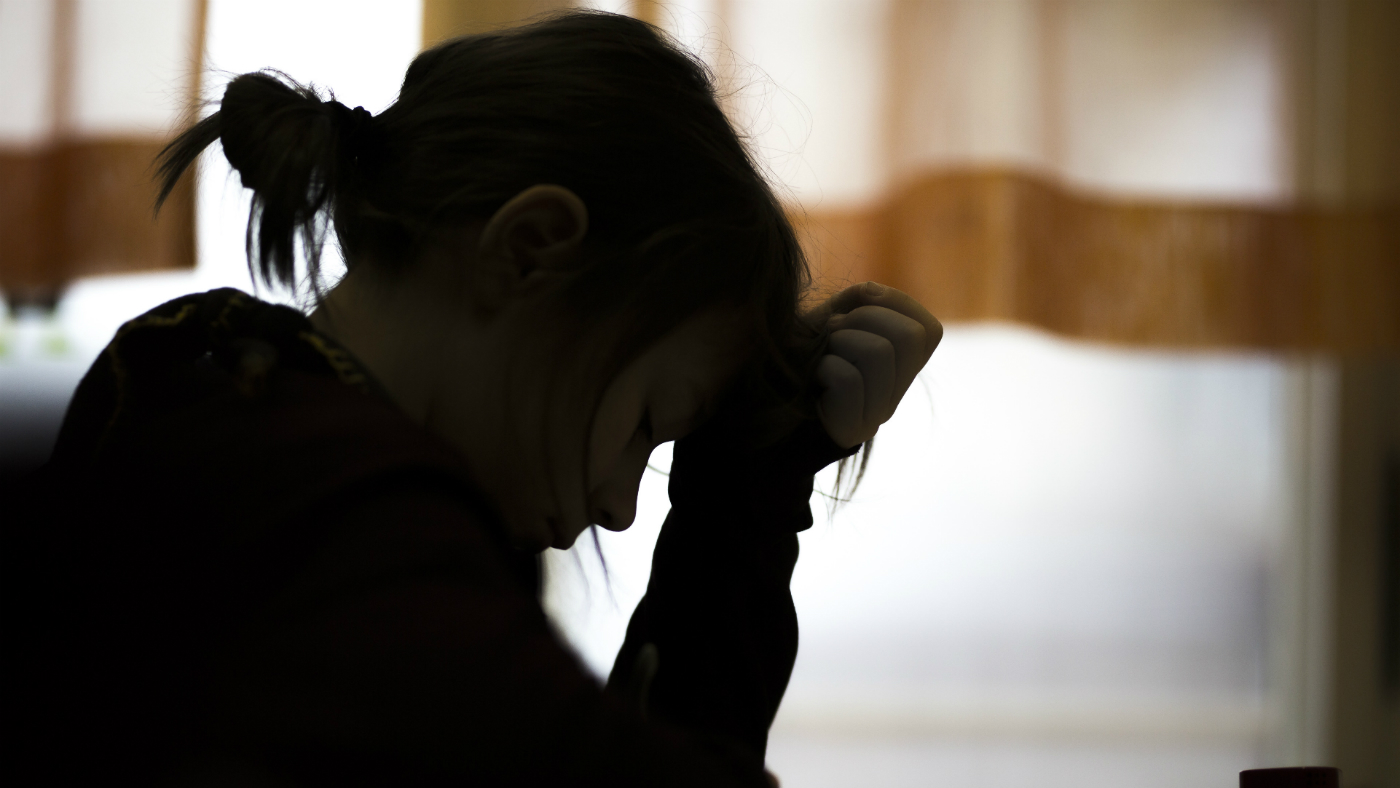What are the signs of depression and can it be treated?
Stigmas around mental health are changing, but talking about it can still be taboo

A free daily email with the biggest news stories of the day – and the best features from TheWeek.com
You are now subscribed
Your newsletter sign-up was successful
According to the NHS, nearly one in four people in the UK are affected by a mental illness. The World Health Organisation estimates there are over 350 million people around the world who suffer from depression specifically, “making it the leading cause of ill health and disability worldwide” says Fortune.
It can affect anyone, anywhere with a recent YouGov poll revealing two thirds of UK adults said that they knew of at least one person affected by depression.
Official data reveals that one in three work sickness notes handed out by GPs are now for mental health reasons and a WHO study found depression and anxiety disorders cost the global economy $1 trillion in lost productivity each year.
The Week
Escape your echo chamber. Get the facts behind the news, plus analysis from multiple perspectives.

Sign up for The Week's Free Newsletters
From our morning news briefing to a weekly Good News Newsletter, get the best of The Week delivered directly to your inbox.
From our morning news briefing to a weekly Good News Newsletter, get the best of The Week delivered directly to your inbox.
Depression is a common, highly preventable illness that affects millions of people across the world, but according to the Journal of the American Medical Association, only 28% of sufferers seek help.
Yet stigmas around mental health are changing fast, “with more people coming forward and openly discussing the once-shunned illnesses that affect so many of us” says the Daily Telegraph.
What is depression?
There is a common misconception that depression is merely feeling “down” or “sad”, when the reality of the illness is far more severe and wide-ranging. Depression is a persistently low mood often associated with extreme despondency and apathy and can last for weeks, months or even years.
A free daily email with the biggest news stories of the day – and the best features from TheWeek.com
The causes vary dramatically. Often, life-changing events can be a trigger - and not necessarily negative moments. Anything from “bereavement, losing your job or even having a baby, can bring it on”, says the NHS.
Furthermore, people with a family history of depression or anxiety, a similar but distinct condition, are far more likely to suffer it at some point in their lives.
However, the truth of the matter is that depression can strike for no reason at all, so it is always worth being vigilant about your mental wellbeing and that of those near to you.

How do I know if I’ve got it?
Due to its often slow onset, depression can sometimes be hard to spot and can creep up on people almost without them noticing. Doctors advise people to seek help if they feel they’re going through a sustained period of tiredness, low energy or mental fatigue and are unable to enjoy things they previously found pleasurable or interesting.
Other symptoms include a loss of appetite and sex drive, sleeping problems, difficulty concentrating, feelings of guilt and hopelessness and a loss of self-confidence. If these symptoms begin to interfere with your daily life, it is possible you are suffering from depression and should speak to your GP.
Another key factor that may help you spot depression not only in yourself but in others is depression’s ability to seemingly dictate conscious choices. For example, it can cause sufferers to avoid certain social situations or friends, leading them to retreat from those who may be able to help. Furthermore, depression can cause serious anxiety and seemingly easy decisions can cause great anguish.
If left untreated, depression can sometimes trigger thoughts of suicide and death. If you find yourself frequently thinking about this, the NHS recommends speaking to your doctor or an A&E department urgently.
This year, Google launched a depression screening test that appears alongside search results for depression-related queries.
Is it common?
Yes. For an illness for which so few seek treatment, a staggering one in ten people in the UK suffer from depression at some point in their life. It also can hit anyone of any age, race or gender.
Recognising this is an important stepping stone to not feeling so isolated in your feelings, says the Royal College of Psychiatrists, adding that one of the best ways to start recovering is to “remind yourself that many other people have had depression”.
Earlier this year, TV presenter Ant McPartlin, most commonly known as one half of Ant and Dec, announced he was entering rehab for treatment for depression, anxiety and prescription drug and alcohol abuse.
Revealing his decision to the Sun on Sunday, the Britain’s Got Talent star said: “I’ve spoken out because I think it’s important that people ask for help if they’re going through a rough time and get the proper treatment to help their recovery.”
According to a list compiled by Elle, other celebrities who have battled against depression include the singer Adele, who told Vanity Fair she suffered from severe postpartum depression, Beyonce, Oscar-winning actress Emma Stone, Lady Gaga, and Bruce Springsteen.
Last year in an interview with the Daily Telegraph, Prince Harry finally opened up about his long struggle with depression.
“I spent most of life saying ‘I’m fine’,” he told Telegraph journalist Bryony Gordon on her mental health podcast Mad World, but over the past ten years “I have probably been very close to a complete breakdown on numerous occasion”.
The prince, along with his brother William and sister-in-law Kate Middleton are now ambassadors for Heads Together, a British mental health organisation.
Does depression differ between women and men?
Depression can affect anyone, although men and women often display symptoms in different ways.
A recent survey by the National Center for Health Statistics found that US women are twice as likely to report being depressed as men. Between 2013 and 2016, 5.5% of men reported having symptoms of depression, compared to 10.4% of women.
The data also showed “big variations depending on ethnicity and income”, says NBC News.
“Depression was lower among non-Hispanic Asian adults, compared with Hispanic, non-Hispanic black, or non-Hispanic white adults,” the researchers wrote.
The biggest discrepancy was between high-income men (2.3%) and women living below the poverty line (20%).
Yet this is only half the story, for while levels of depression reported among men may be lower than women, the stigma surrounding the condition means far more male cases go unreported, undiagnosed and untreated.
The Campaign Against living Miserably cites figures from the Office for National Statistics that suicide currently stands as the biggest single killer of men aged under 45 in the UK. In 2014, there were 6,109 suicides in the UK, of which 76% were male, and “the ratio of male to female suicide has shown a sustained rise over the past 30 years”, says The Guardian.
In other cases the telltale signs of depression are overlooked.
“That’s especially tricky for men, because they tend to show symptoms that aren't typically what you would associate with depression,” says John Greden, executive director of the University of Michigan Comprehensive Depression Center.
Men’s Health lists seven signs men may be depressed that prove it’s not all about feeling sad.
What about childhood depression?
According to the Health Secretary Jeremy Hunt, around half of all mental illness starts before the age of 14, with nearly one in four 14-year-old girls and almost one in 10 boys the same age, saying they have felt inadequate, unloved, or worthless
This has prompted the government to introduce new plans to tackle the growing crisis in young people’s mental health. Under proposals included in a government green paper launched last year by Hunt and the former education secretary Justine Greening, children suffering from anxiety and depression will, from 2019, be able to attend counselling sessions with therapists at school or college.
Every school will also be required to appoint a teacher to co-ordinate improved support for the fast-growing number of children who are struggling mentally, many of whom self-harm as a result of bullying, exam stress, dissatisfaction with their body shape, troubles at home and other factors.
Access to NHS child and adolescent mental health services will also be subject to a new guaranteed maximum four-week waiting time for under-18s as part of the prime minister’s drive to tackle the UK’s growing mental health epidemic.
How can I get treatment?
Thankfully, there are a whole host of solutions to the problems faced by those with depression.
For mild sufferers, doctors suggest “watchful waiting” to see whether the illness goes away on its own, along with healthy eating and an increase in physical activity.
If this does not help, or for sufferers of moderate to severe depression, a combination of therapy and medication can be prescribed. Cognitive behavioural therapy (CBT), which aims at changing negative patterns of thinking, is often used in conjunction with antidepressants.
Antidepressants do not always work for everyone and often have consequential side-effects. If you experience any of these, it’s important to speak to your doctor to have your prescription changed.
How can I help a family member or friend?
A friend, family member or even a co-worker may be suffering from depression, yet have not sought help for it.
Although it is understandably tricky to inform someone you believe they may need medical help, there are some signs you may be able to see that they may not.
For instance, if someone has slower speech and movements, or is more fidgety and restless than usual, they may have depression. “Empty fridges and cupboards (which suggest a poor diet)”, “neglected appearance” and “poor hygiene” may also be warning signs, says the NHS.
Talking about depression to someone you suspect may be suffering may seem a daunting task, but with patience and understanding they may seek the help they require.
“Without judging them, gently encourage them to help themselves – for example, by staying physically active, eating a balanced diet and doing things they enjoy,” advises the Depression Alliance.
“Get information about the services available to them, such as psychological therapy services or depression support groups in their area, and stay in touch with them by messaging, texting, phoning or meeting for coffee. People who are depressed can become isolated and may find it difficult to leave their home.”
If the person you’re worried about expresses suicidal feelings, you or they should contact a GP or NHS 111. You can also call the Samaritans free on 116 123 for confidential, 24-hour support or Mind, the mental health charity on 0300 123 3393.
-
 Why is the Trump administration talking about ‘Western civilization’?
Why is the Trump administration talking about ‘Western civilization’?Talking Points Rubio says Europe, US bonded by religion and ancestry
-
 Quentin Deranque: a student’s death energizes the French far right
Quentin Deranque: a student’s death energizes the French far rightIN THE SPOTLIGHT Reactions to the violent killing of an ultraconservative activist offer a glimpse at the culture wars roiling France ahead of next year’s elections
-
 Secured vs. unsecured loans: how do they differ and which is better?
Secured vs. unsecured loans: how do they differ and which is better?the explainer They are distinguished by the level of risk and the inclusion of collateral
-
 Depression: chemical imbalance theory ‘not grounded in science’
Depression: chemical imbalance theory ‘not grounded in science’Speed Read Scientific review questions long-assumed link between serotonin and low mood
-
 ‘Let’s kick Blue Monday to the kerb in 2022’
‘Let’s kick Blue Monday to the kerb in 2022’Instant Opinion Your digest of analysis from the British and international press
-
 Body clock disruption linked to depression
Body clock disruption linked to depressionSpeed Read New study finds irregular circadian rhythms may lead to mood disorders
-
 Record number of UK children reporting suicidal thoughts
Record number of UK children reporting suicidal thoughtsSpeed Read Report shows NSPCC provided 62 counselling sessions a day for desperate kids and teenagers last year
-
 AI teenage schoolgirl slips into deep depression
AI teenage schoolgirl slips into deep depressionSpeed Read Japanese engineers work to help suicidal bot blogger - and other tall tales
-
 Antidepressants 'can raise risk of suicide in under-18s'
Antidepressants 'can raise risk of suicide in under-18s'Speed Read Drugs firms accused of failing to report side effects, and even deaths, related to medication
-
 Blue Monday: is today really the most depressing day of the year?
Blue Monday: is today really the most depressing day of the year?In Depth Popular belief identifies third Monday in January as the saddest date on the calendar